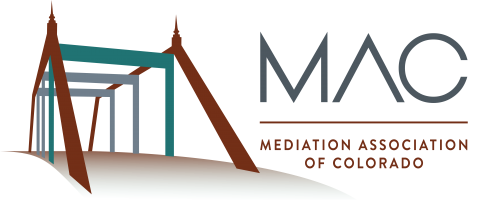Planning for the future is one of the most important steps you can take to protect your assets and provide for your loved ones. At Anzen Legal Group, our Fort Collins estate planning attorneys are dedicated to helping individuals and couples craft comprehensive and customized estate plans that reflect their unique needs and goals.
Whether you are starting fresh or updating an existing plan, as estate plan lawyers with decades of legal experience, we can guide you through the process to ensure that your estate plan covers every detail, minimizing stress and uncertainty. Contact our office today at 970-893-8857 to schedule a consultation.
What Is Estate Planning?
Estate planning involves more than just drafting a will. It is a holistic approach to managing your assets, planning for potential incapacitation, and ensuring that your wishes are followed after your passing. A solid estate plan protects your property, provides for your family, and reduces the burden of legal complexities during difficult times. It can also help minimize taxes and ensure that your assets are distributed according to your desires.
At Anzen Legal Group, our estate planning and probate services encompass the following:
- Wills
- Trusts
- Powers of Attorney
- End-of-Life Planning
- High Net Worth Estate & Legacy Planning
- Business Succession Planning
- Trust Administration
- Probate
- Tax Planning
Why Choose Anzen Legal Group for Your Estate Planning?
We recognize that everyone’s situation is different. We take the time to get to know our clients so that an estate plan can be tailored to meet their specific needs.
Whether you have a modest estate or a more complex portfolio of assets, we are equipped to handle every aspect of estate planning. We build long-term relationships with our clients, offering ongoing support as their needs change over time.
What Are the Key Components of an Estate Plan?
A comprehensive estate plan often includes a number of legal documents, each serving a unique purpose. The following describes some of these components:
- Will. A will outlines how you want your assets to be distributed upon your death. It allows you to name beneficiaries, appoint an executor, and specify guardians for minor children.
- Trust. Trusts offer additional transfer flexibility and can reduce the assets subject to probate. A trust can manage and protect assets during your lifetime and distribute assets according to your wishes after your passing. When assets are placed into a trust, they typically bypass the probate process.
- Powers of Attorney. A power of attorney allows you to appoint someone to make financial or legal decisions on your behalf if you become incapacitated.
- Advance Directives. These documents, including healthcare proxies and living wills, outline your medical preferences if you cannot communicate them yourself.
- Guardianship and Conservatorship. If you have minor children or dependents with special needs, it is essential to designate a person who can manage their financial and lifestyle affairs if you can no longer do so. It may also be beneficial to establish as Special Needs Trust.
What Property Is Included In An Estate?
Your estate includes everything you own, such as your home, vehicles, bank accounts, retirement accounts, investments, furniture, and personal belongings. It may also encompass legal rights, like the right to file a wrongful death lawsuit.
No matter the size of your estate, it’s important to decide how your assets will be distributed to individuals or organizations. To ensure your wishes are followed, you must provide clear instructions on who will receive what and when.
What Assets Are Not Distributed Under a Will? Non-Probate Assets.
There sometimes is a misperception that all of a person’s assets are distributed in accordance with a will. This is not the case.
The following assets are “non-probate assets” because they are not distributed in accordance with a will:
- Trust assets. A trust is considered a separate legal entity. As the result, once assets are placed into a trust, the assets are managed and ultimately distributed in accordance with the terms of the trust.
- Pay on Death and Transfer Upon Death Accounts. Often, bank and other financial accounts will be established as “pay on death” or “transfer on death” to a specified person or entity. In these cases, the person named as the transferee will automatically own the assets in that account upon the death of the original account owner.
- Other transfer on death property. In some instances, real estate and other assets can be designated as “transfer on death” so that the assets will automatically be transferred when the owner dies to the designated person. In real estate matters, this can be accomplished by a transfer on death deed.
- Property held as “Joint Tenants With Right of Survivorship”. Often, homes, cars, and other assets are titled with this designation. Upon death, the other person (or persons) named as joint tenants will automatically succeed in owning the interests of the deceased tenant.
- Life Insurance Proceeds. Whoever is named as the beneficiary or beneficiaries of a life insurance policy will receive the proceeds of the policy upon the death of the named individual.
- Retirement Account Proceeds. Similar to life insurance proceeds, any beneficiaries named in these accounts will also receive the account proceeds.
- Contractual commitments. In some situations there may also be contractual commitments that may be in place that will be applicable to the transfer of certain assets upon death.
As estate planning lawyers, we can discuss with you the benefits of changing the title to specific assets. For instance, if you are married and want to transfer all of your assets to your spouse if you die before your spouse, it may be beneficial to transfer title to your house, vehicles, and financial accounts so that they are titled as being owned as “joint tenants with right of survivorship” or “pay on death”. This would allow your spouse to automatically become the owner of such assets upon your death without the property needing to be transferred by will and potentially subject to the probate process.
There are sometimes drawbacks to making these changes, and potentially tax ramifications. As a result, you should speak to an experience estate planning lawyer before making any such changes.
What Happens if I Die in Colorado without an Estate Plan?
If you die in Colorado without an estate plan, your assets will be distributed according to Colorado intestacy laws. This means the state will determine how your property will be divided and who will inherit your assets.
Without a will or trust, the probate process can also become more complex and costly for your loved ones. An estate plan is essential to ensure that your wishes are respected and that your family is protected from unnecessary legal battles.
Who Receives My Assets if I Don’t Have a Will?
In Colorado, if you don’t have a will, all of your non-probate assets (as mentioned above) will be transferred by Colorado intestacy laws. These laws look to your spouse and blood relatives in terms of who will be entitled to inherit your assets.
If you die without a spouse and if you have biological and/or adopted children, they will be entitled to inherit your estate in an equal share. If you don’t have a spouse and never had any children, intestacy laws will then look at your parents and then to your brothers and sisters and any of their children.
In some cases, if a blood relative dies and while other blood relatives survive that are of the same relationship to the decedent, the children of the blood relative who previously died may inherit the assets that their parent would have inherited. Thus in some instances, intestacy inheritance can be complex, and often requires the assistance of an experienced probate lawyer.
Determining How to Divide or Transfer Certain Assets
The estate planning process often encompasses how to address the division of certain assets that cannot be easily divided, such as a house.
For example, let’s say that a single parent dies owning a valuable house, and the parent has four adult children. These children all may have different interests in the house – all (or some) of them may want to own it, or perhaps two want to own it, and two want to sell the house for as much as possible and split the sales proceeds.
These are not only complex situations, but the desires and interests of the children may change between the time an estate plan is crafted and when the parent dies. Thus in some situations, such as this, it will often be critical for a parent to speak with their children to learn about the specific interests of each of the children regarding the house so that they can take these interests into account in determining what should happen to the house when they die.
As experienced estate plan attorneys, we help clients explore a number of different possibilities and solutions for complex matters such as this, so that the beneficiaries are not saddled with trying to sort out what should happen to critical assets.
Business Succession Planning
Like in the house situation noted above, business owners will need to contemplate a potentially complicated situation – what should happen to the business after they die (particularly if they die unexpectedly)?
Business succession planning encompasses how to deal with a number of very different business transfer situations, including businesses that may have been in the family for generations, and businesses that may be totally or partially owned by a person. As business succession lawyers, we can assist in these situations. Please see our page on business succession planning.
Can Estate Planning Help Minimize Taxes?
Estate planning may significantly reduce the tax burden on your estate, ensuring that more of your assets go to your beneficiaries rather than being lost to taxes.
Our estate planning lawyers will explain how various tax strategies – such as gifting, trusts, and charitable donations – can be used to minimize estate taxes and maximize asset preservation. We can also help you plan for the transfer of retirement accounts and other financial assets to ensure they are handled in a tax-efficient manner.
FAQs About Colorado Estate Planning
What Are The Key Components Of An Estate Plan?
A comprehensive estate plan typically includes some or all of the following: will, trust(s), powers of attorney, and living will/advance directives. Each of these documents serves a specific purpose, from designating how assets will be distributed to ensuring that your healthcare preferences are followed if you become incapacitated. Special needs trusts and other estate planning documents may also be desirable.
How Often Should I Update My Estate Plan?
You should consider updating your estate plan after major life events such as marriage, divorce, the birth or adoption of a child, or significant financial changes. At a minimum, we recommend reviewing your estate plan every three years to ensure it reflects your current wishes and circumstances.
Can I Avoid Probate in Colorado with a Comprehensive Estate Plan?
Yes, it may be possible to avoid probate in Colorado by utilizing various estate planning tools.
One common method is creating a revocable living trust, which allows assets to be transferred to beneficiaries without going through the probate process. Additionally, joint ownership with the right of survivorship ensures that assets pass directly to the surviving owner.
Beneficiary designations on accounts like retirement funds, life insurance policies, and payable-on-death accounts as noted above can also bypass probate. By using these strategies, you may be able to streamline asset distribution and reduce the costs and delays associated with probate.
Schedule A Consultation with an Experienced Fort Collins Estate Planning Attorney
Estate planning is not a one-time event but a lifelong process requiring periodic review and adjustment. At Anzen Legal Group, we are here to support you through every stage of the estate planning process, offering personalized advice and comprehensive legal services. Contact us today to schedule a consultation with one of our experienced Fort Collins estate planning attorneys and start protecting your future.
Estate Planning News & Insights
Keep up to date with the most important developments in wills and estate planning through our comprehensive resources. Whether you’re seeking advice on how to create a will, navigate the probate process, or safeguard your assets for the future, our collection of articles offers essential information to guide you. Check out the links below to explore helpful insights and make sure your estate plan aligns with your latest goals and wishes.
- Estate Planning: A Comprehensive Guide To Protecting Your Assets And Minimizing Taxes
- Secure Your Digital Assets: Essential Estate Planning Steps
- Revamp Your Estate Plan For A Thriving Future
- How To Protect Your Assets And Provide For Loved Ones
- Avoiding Estate Planning Disasters
- Intestate Succession Understanding The Basics
- Understanding Types Of Probate: Choosing The Right Path For Your Needs












